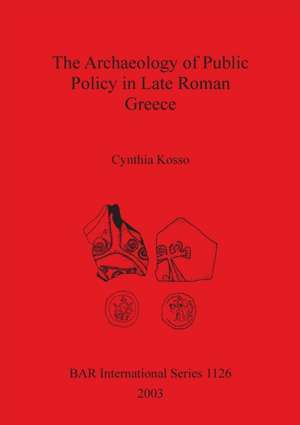The Archaeology of Public Policy in Late Roman Greece
Autor Cynthia Kossoen Limba Engleză Paperback – 15 iul 2003
Preț: 305.64 lei
Nou
Puncte Express: 458
Preț estimativ în valută:
58.50€ • 60.29$ • 49.39£
58.50€ • 60.29$ • 49.39£
Carte tipărită la comandă
Livrare economică 01-15 martie
Preluare comenzi: 021 569.72.76
Specificații
ISBN-13: 9781841715025
ISBN-10: 1841715026
Pagini: 98
Dimensiuni: 210 x 297 x 7 mm
Greutate: 0.4 kg
Editura: British Archaeological Reports Oxford Ltd
ISBN-10: 1841715026
Pagini: 98
Dimensiuni: 210 x 297 x 7 mm
Greutate: 0.4 kg
Editura: British Archaeological Reports Oxford Ltd
Notă biografică
Cynthia Kosso
